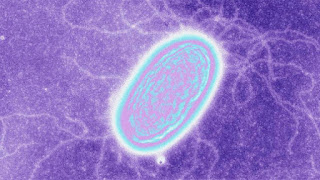Can bacteria produce electricity?

Can bacteria produce electricity? The depletion of fossil fuel reserves, global warming, energy security and the need for clean, cheap fuels has made developing sources of renewable energy a global research priority. Microbial Fuel Cells (MFCs) have the potential to generate renewable electricity from a vast array of carbon sources such as waste-water, agricultural by-products and industrial pollutants. MFCs are not yet commercialized but they show great promise as a method of water treatment and as power sources for environmental sensors and are the promising factors for future. The power produced by these systems is currently limited, primarily by high internal (ohmic) resistance. The optimization of MFC systems is a highly multidisciplinary area of research and two complementary areas of work are required - firstly to design more efficient hardware for the cells by traditional engineering and secondly to understand and improve the interaction and electron transport betwe

